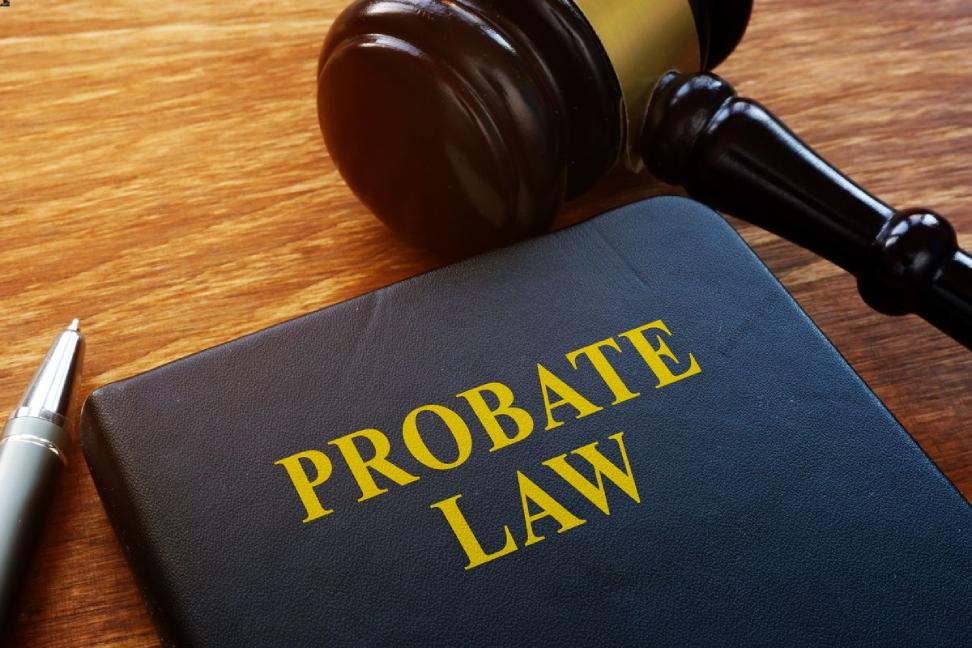Losing a loved one is a painful and challenging time. On top of the emotional burden, there’s often a mountain of paperwork and legalities to handle. This is where probate lawyers come in – skilled guides who help navigate the often complex legal process of settling an estate.
So, What Exactly Is A Probate Lawyer?

These legal professionals specialize in estate administration, the process of identifying, valuing, and distributing the assets of someone who has passed away. They act as trusted advisors and representatives, ensuring the deceased’s wishes are carried out smoothly and efficiently.
When Might You Need A Probate Lawyer?
While some estates can be handled without legal counsel, here are some situations where a probate lawyer’s expertise becomes invaluable:
- Complex estates: If the deceased owned property in multiple states, had a sizable business, or faced significant debt, the legal intricacies can be overwhelming. A probate lawyer can take care of the complicated paperwork and court proceedings.
- Contested wills: If there are disputes about the will’s validity or beneficiary entitlements, a lawyer can represent your interests and protect your rights.
- No will: If the deceased died intestate (without a will), a lawyer can guide you through the legal procedures for administering the estate according to state laws.
- Tax implications: Estates can incur significant tax obligations. A probate lawyer can help minimize tax liabilities and ensure compliance with federal and state regulations.
What Does A Probate Lawyer Do?
The specific tasks can vary depending on the estate’s complexity. However, some common duties include:
- Locating and inventorying assets: This involves identifying and valuing all the deceased’s property, from bank accounts to real estate.
- Paying debts and taxes: The lawyer ensures all outstanding debts and taxes are settled.
- Obtaining court orders: Certain legal documents, like Letters of Testamentary, require court approval. A lawyer can handle the petition process.
- Resolving disputes: If any conflicts arise among beneficiaries, the lawyer can mediate or represent you in court proceedings.
Hiring a probate lawyer can provide invaluable peace of mind during a difficult time. They can ease the legal burden, protect your interests, and ensure a smooth and efficient estate settlement. Remember, you don’t have to navigate this process alone.
What Does A Probate Lawyer Do?

When a loved one passes away, grief often intertwines with a tangle of unfamiliar legal processes. One such process is probate, a court-supervised procedure for settling the deceased’s estate. For many, navigating this complex terrain can feel daunting. This is where a probate lawyer steps in, acting as your guide and advocate throughout the journey.
Unraveling The Probate Puzzle:
At its core, a probate lawyer helps ensure the deceased’s wishes are honored and their assets are distributed as intended. This involves several key tasks:
1. Locating and Validating the Will: If a will exists, the lawyer will identify it, analyze its validity, and guide the designated executor through its interpretation and execution.
2. Inventorying the Estate: All assets, from bank accounts and property to investments and personal belongings, are meticulously identified and valued. This comprehensive inventory forms the foundation for managing and distributing the estate.
3. Settling Debts and Taxes: The lawyer ensures all outstanding debts, including taxes, are paid. This involves identifying creditor claims, prioritizing payments, and potentially negotiating settlements.
4. Guardianship and Trusts: In cases involving minor children or vulnerable individuals, the lawyer may assist in establishing guardianships or managing any existing trusts as outlined in the estate plan.
5. Asset Distribution and Beneficiary Communication: Following legal requirements and the will’s instructions, the lawyer facilitates the transfer of assets to rightful beneficiaries. This often involves communication with beneficiaries, handling inheritance disputes, and ensuring proper documentation.
Beyond The Basics:
A skilled probate lawyer’s role extends beyond these core tasks. They can:
- Offer Legal Counsel: They provide expert advice on complex legal issues arising during the probate process, such as inheritance tax implications or potential family disputes.
- Minimize Conflicts: Their experience allows them to anticipate and mitigate potential conflicts between beneficiaries, ensuring a smoother and less acrimonious process.
- Coordinate with Other Professionals: Probate often involves collaboration with financial advisors, real estate agents, and tax specialists. The lawyer plays a key role in facilitating this collaboration and ensuring everyone is on the same page.
When To Seek Guidance:
While some simple estates may not require a lawyer’s intervention, consulting one can be beneficial in various situations:
- Complex Estates: Estates with significant assets, intricate trusts, or potential inheritance disputes are best handled with legal expertise.
- Lack of Clarity: If the deceased’s will is unclear or there are any ambiguities regarding their wishes, legal counsel can provide guidance and interpret legal nuances.
- Contested Wills: In cases where the will’s validity is challenged, a lawyer is crucial for defending the deceased’s wishes and representing the executor’s interests.
- Peace of Mind: Navigating probate can be emotionally draining. Engaging a lawyer allows you to focus on grieving your loved one while they handle the legalities.
Remember: Probate lawyers are there to ease the burden and guide you through the complexities of administering an estate. Their expertise can ensure a smooth, efficient, and legally sound resolution, allowing you to focus on healing and moving forward.
What Questions Should You Ask a Probate Lawyer?

Losing a loved one is never easy, and navigating the legal complexities of their estate can add another layer of stress to an already difficult time. This is where a probate lawyer comes in. But how do you choose the right lawyer and make sure they understand your unique situation? Asking the right questions is crucial. Here are some essential inquiries to consider:
Understanding Your Situation:
- 1. How much experience do you have with probate cases similar to mine? Knowing the lawyer’s experience with estates of similar size, complexity, and potential challenges can give you confidence in their ability to handle your case effectively.
- 2. What is your understanding of my loved one’s will and any other relevant estate documents? A thorough review of the legal documents shows the lawyer’s attention to detail and their level of preparedness to deal with the specifics of your case.
- 3. Do you have experience working with families during this difficult time? Probate can be emotionally charged, and understanding how the lawyer interacts with families in sensitive situations is vital.
Navigating The Process:
- 4. What steps are involved in the probate process for my situation? A clear explanation of the timeline and procedures involved helps you manage expectations and prepare for what lies ahead.
- 5. What is your communication style and how often can I expect updates? Knowing how the lawyer keeps you informed ensures you feel comfortable and involved throughout the process.
- 6. What are the potential challenges or disputes that may arise and how would you handle them? Understanding potential conflicts and the lawyer’s approach to resolving them gives you peace of mind about navigating unforeseen complexities.
Cost And Payment:
- 7. How do you charge for your services? Be upfront about your budget and ask about their fee structure (hourly, flat rate, etc.) to avoid financial surprises.
- 8. Having a clear understanding of the overall financial implications helps you make informed decisions.
- 9. What payment options do you offer? Knowing payment options available can help you budget and manage the financial aspect of the process.
Building Trust and Rapport:
- 10. What resources do you have available to guide me through this process? Ask about informational resources, online tools, or support groups they recommend for additional guidance.
- 11. Can I speak to some of your past clients about their experience with you? References from satisfied clients can give you valuable insights into the lawyer’s work ethic and communication style.
- 12. Do you have any questions for me to help you understand my situation better? This shows the lawyer’s active interest in understanding your needs and tailoring their approach accordingly.
Remember: Asking these questions fosters open communication and builds trust, ensuring you choose a probate lawyer who can not only navigate the legal complexities but also provide empathy and support during this challenging time. While no two situations are exactly alike, these questions serve as a starting point for a productive conversation with your potential lawyer.
By preparing these questions and conducting thorough research, you can select the right probate lawyer to effectively handle your loved one’s estate and guide you through this difficult process with clarity and compassion.
Read Also:
- Can Power Of Attorney Change A Will?
- How to Detect And Prove Power of Attorney Abuse?
- How To Get Power Of Attorney When Someone Is Incapacitated?


